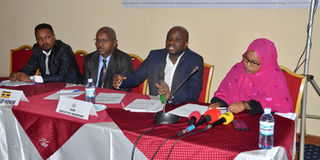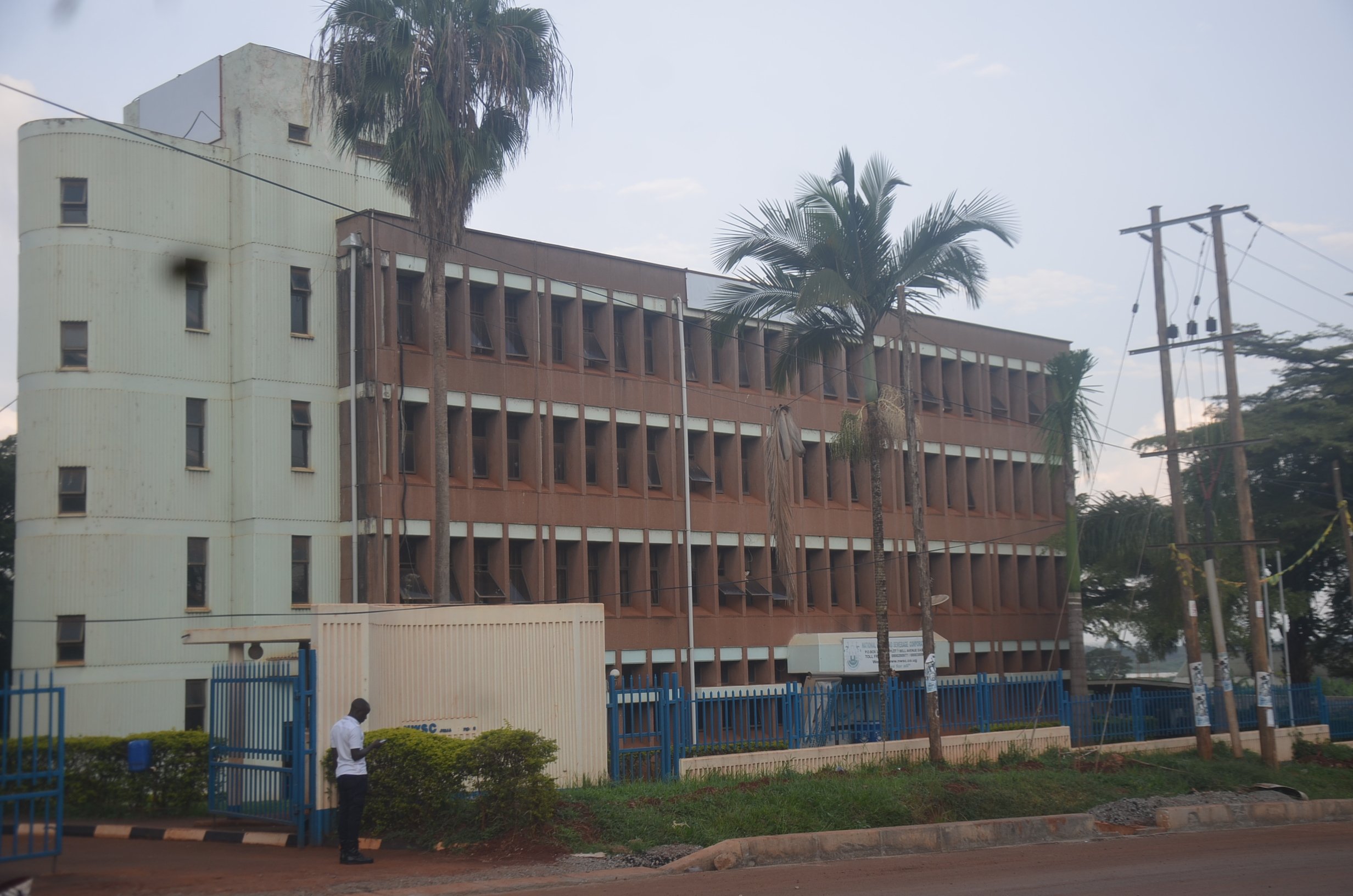IGAD calls for stronger restrictions against fake drugs

R-L: Ms Fatuma Adan, Mr Anthony Torotich, the medicine regulatory specialist and other IGAD officials during the meeting to disseminate laboratory results of medicine sampled from cross-border areas. Photo by Eve Muganga
What you need to know:
- Ms Fatuma Adan, the in charge of health and social division-IGAD, said they conducted a survey in December 2018 to February 2019 on the quality of oxytocin injection and amoxicillin dispersible tablet circulating in selected cross-border areas in the IGAD region and found that 21 percent of oxytocin infection samples tested didn’t meet quality specifications.
ENTEBBE. The Intergovernmental Authority on Development (IGAD) has called for stronger restrictions against fake in selected cross –border areas in the IGAD region.
This was during the conference to disseminate laboratory results of medicines sampled from the selected cross border area which was held at Lake Victoria in Entebbe on June 19, 2019.
According to Mr Anthony Toroitich, the bloc’s medicine regulatory harmonization specialist, they would want to see laws against cross-border trade in fake medicines among member states.
“First, we need to develop appropriate harmonized regulatory actions to be implemented by the member states. Secondly, all member states should invest improve on their regulatory authorities because there are countries without regulatory authorities against their products. Validated post marketing surveillance report should be done. Thirdly, we must ensure that all products must be registered,” Mr Toroitich said.
According to him, all member states ought to increase on their capacity registration to avoid substandard products, sensitizing the public about the dangers of substandard medicines.
“And lastly, member states should provide recommendations for actions and solutions that will help ensure the quality of medicines in the IGAD region,’’ said Mr Toroitich.
However, Mr David Nahamya, the Ag. Secretary National Drug Authority (NDA) lauded the work of IGAD to bring together the regulatory authorities to fight against substandard and falsified medicines in the region through enhancing strategic partnerships within the region.
“NDA recognizes post market surveillance as one of the core regulatory functions to ensure quality products on the market which is incorporated within the 2016-2021 strategic plans,’’ he said.
Ms Fatuma Adan, the in charge of health and social division-IGAD, said they conducted a survey in December 2018 to February 2019 on the quality of oxytocin injection and amoxicillin dispersible tablet circulating in selected cross-border areas in the IGAD region and found that 21 percent of oxytocin infection samples tested didn’t meet quality specifications.
The survey also found that 100 percent of amoxicillin samples (both dispersible tablet and suspension) tested passed all quality tests.
“This means that women who may need this product during child birth may be exposed to substandard medicines which may not be as effective as a quality assured product,’’ she said while giving the first regional survey on the quality of medicines at cross-border areas.
In addition she said that 72 percent of oxytocin injection products, 30 percent of amoxicillin dispersible tablet products and 26 percent of amoxicillin suspension products collected were not registered by the relevant national medicine regulatory authority.
Oxytocin is used to induce labour, prevent and treat excessive bleeding after child birth while Amoxicillin is a widely used antibiotic drug for children and adults.




